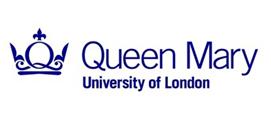Procedural Programming
Students are likely to bring some understanding of the procedural programming paradigm, as it dominates study at the previous, lower level. Practical experience of programming in a procedural language will cement concepts and deepen understanding as they move towards writing modular code and rigorous program testing. They will develop better, and more complex, ways to control program flow, and to manipulating data in memory and in external files.
- ALL
- Teacher guidance
- Textbook
- Activity sheet
- External link
- Other
Teacher guidance
You are the computer
This resource covers the topics of functions and recursion. Students are provided with Python code and need to think through exactly what the code will do.
Spot the difference
An excellent activity from CS4FN to train students’ eyes to spot errors in code. This would form a useful starter activity.
Create a Face
A very enjoyable group activity for students that will allow them to develop their decomposition skills and developing modules for each emotion that they need the face to display.
Software testing
This document consists of presentation slides on the topic of software testing. It defines relevant keywords and explains testing methodologies. It could form a useful revision resource or comprehension questions could be designed around its contents.
Textbook
Python 3 Student workbook
This resource is a comprehensive beginner’s guide to creating procedural programs using Python 3. It would be suitable for self-paced learning and independent work. There are also activities that are suitable as homework tasks that reiterate key terms and concepts. It was originally developed for the pre-2015 specification however, coverage is sufficient for the new versions also.
Activity sheet
The Little Book of Programming Challenges
It is suggested that this booklet could be given to students as a sequence of homework activities to widen their programming experience. Challenges could also be isolated to illustrate particular techniques.
External link
Coding challenges 1-40
A useful resource for teachers and students. Teachers can use these booklets for lesson ideas. Students can use the challenges to test their programming skills. There are 40 programming challenges spread across two documents. The earlier challenges are ideal for beginners.
The basics of C programming
Students are likely to have encountered Python either via GCSE study but it is often useful, particularly for more able students, to experience other languages that use the same paradigm. This is a very accessible beginners’ tutorial from Stanford University that will allow students to learn all major constructs in C.
Thinking procedurally
This teacher guide includes activities to allow students to decompose the familiar game of hangman. Students could create a structure diagram showing the break down of the whole program and then code in a procedural language of their choice.
Other
Coding challenges examples
Two worked example coding challenges from OCR that are useful for teachers as a teaching aid. These can be used to illustrate the relationship between a flow chart, pseudo-code and program code.




